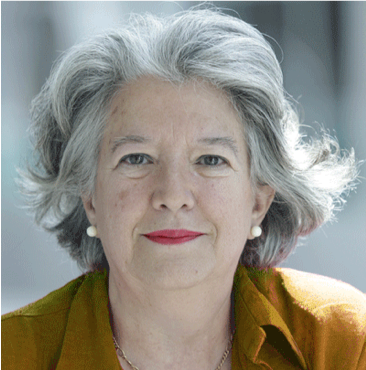It is fundamental to mention some Spanish predecessors who denounced women inequalities, like Victoria Kent, Emilia Pardo Bazán or María Telo. Rosa María Capel Martínez has collaborated with Mª Ángeles Durán. In addition, sociologist Soledad Murillo has denounced the social devaluation of private and domestic environment and caring of people.

Mª Ángeles Durán Heras
(Ángeles Durán)
Madrid, 30-11-1942
Period of activity: 1968 — Still active
Geographical classification: Europe > Spain
Socio-cultural movements
Late modern period / Contemporary period > Feminism
Groups by dedication
Activists > Feminists (activists)
Humanistics > Feminists (intellectuals)
Humanistics > Sociologists
Educators > Teachers / Lecturers / Professors
Writers > Essayists
Context of feminine creation
Review
Born in 1942, she grew up in the post-war period and the early years of Spanish modernisation. She studied political science and economics at the same time as she began an exhaustive investigation into the invisibility of women's work. Since the 1960s she has denounced the bias produced in science by the historical absence of women in the production and transmission of knowledge. She founded the "Seminario de Estudios de la Mujer" at the Universidad Autónoma de Madrid, the first university institute for women's studies created in Spain. Author of more than two hundred and fifty publications, her doctoral thesis "Women's work" marked the beginning of systematic research on the social conditioning factors in women's lives in Spain, coining the term "cuidadotorio", a new emerging social class, mostly women who work without paid employment and without social recognition.
Justifications
Biography
M.ª Ángeles Durán is a Spanish researcher specialising in the analysis of unpaid work and its relationship with the social and economic structure. She has been Professor of Sociology and Research Professor at the Consejo Superior de Investigaciones Científicas, where she has directed the Department of Socioeconomic Analysis.
Born in 1942, she grew up in the post-war period and the early years of Spanish modernisation. She studied political science and economics at the same time as she began an exhaustive investigation into the invisibility of women's work. Since the 1960s she has denounced the bias produced in science by the historical absence of women in the production and transmission of knowledge. She founded the "Seminario de Estudios de la Mujer" at the Universidad Autónoma de Madrid, the first university institute for women's studies created in Spain. Author of more than two hundred and fifty publications, her doctoral thesis "Women's work" marked the beginning of systematic research on the social conditioning factors in the lives of women in Spain, coining the term "cuidadotorio", a new emerging social class, mostly women who work without paid employment and without social recognition.
His academic career is inseparable from his civic commitments and links with social movements; among them, the struggle of women for equality, the struggle of the sick and their carers for the recognition of new economic and civic rights, and the struggle for the recovery of regions in economic decline and at risk of depopulation.
Wikipedia, 17/03/2022, https://es.wikipedia.org/wiki/Mar%C3%ADa_%C3%81ngeles_Dur%C3%A1n
Works
- Durán Heras, Mª Ángeles (2000). La contribución del trabajo no remunerado a la economía española. Madrid: Ministerio de Trabajo y Asuntos Sociales. Instituto de la mujer.
- Durán Heras, Mª Ángeles (2006). El valor del tiempo ¿cuántas horas le faltan al día? Madrid: Espasa.
- Durán Heras, Mª Ángeles (2010). Tiempo de vida y tiempo de trabajo. Bilbao: Fundación BBVA.
- Durán Heras, Mª Ángeles (2012). El trabajo no remunerado en la economía global. Bilbao: Fundación BBVA.
- Durán Heras, Mª Ángeles (2018). La riqueza invisible del cuidado. Valencia: Universitat de València.
Bibliography
- Gómez, Ángeles (2012). "María Ángeles Durán: tenemos mucha más economía encubierta que la que reconocemos" in expansion.com.
- Raya Bayona, Lola (2008), "María Ángeles Durán, Catedrática de Sociología y Profesora de Investigación del CSIC: El ama de casa es uno de los grandes motores de la economía", in consumer.es.
Audiovisual. Objetivo Igualdad. Retrato 100x100 feminista: Ángeles Durán, in play rtve, 17/03/2022,
Didactic approach
In Geography of 3rd of ESO, in the block of he human space the author's studies in the section on the political and economic organisation of societies in order to make social gender inequalities visible can be presented. Through some of her numerous studies on the use of time, students will be able to see how much time women and men spend on different activities, and how care is mostly carried out by women. In addition, students will be able to reflect on the difference between unrecognised and unpaid work and paid employment recognised by societies and states.